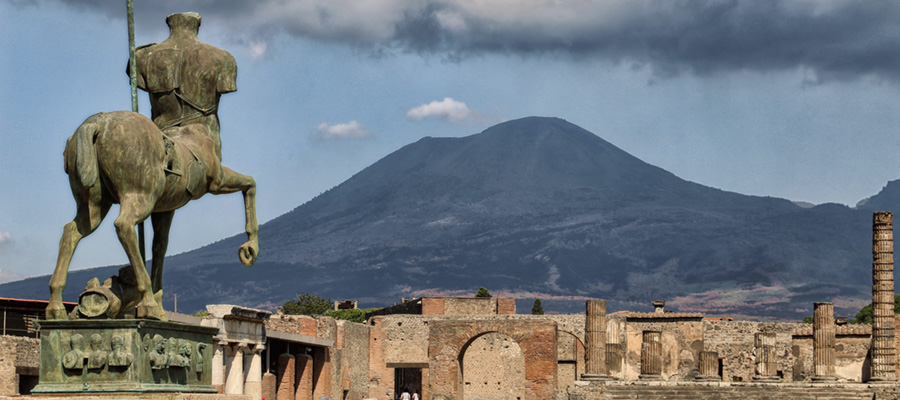2.7 The Pompeii Story

Here is Warren Mosler's Pompeii story for your enjoyment. He took an organised public tour of Pompeii in Italy with about 20 or 30 people, and the guide showed him some simple metal coins that had been used in the city during the period when Pompeii was great.
Here is a conversation that followed.
The tour guide said: “Pompeii was a very nice place to live because they would collect these coins as taxes and then they would pay people to have sanitation and public safety and whatnot."
Warren ever curious said in reply: “Actually, the way it worked was, first they would pay the people and then they would collect the coins.”
The guide replied: “No, you collect taxes and then you pay the people.”
Warren then asked: “Well, where do coins come from?”
The guide said: “Well, the government made them."
Warren then said: “How did anybody get a coin to pay the tax?
The guide replied in confusion: "So they paid the people first and then they collect the taxes?"
Warren said: "How else can it work?”
The guide said: “No, no, no, no, no" and he grabbed his head in angst and walked away and he wouldn’t talk to Warren for the rest of the tour.
If we went back to those times before it was abandoned in AD79, it is certain that everybody in Pompeii knew how the system worked.
The city authority (government) placed a tax on everyone's house which meant that the people now had a problem - they needed to get the government's metal coins in order to not forfeit their houses to the government.
Some people would then go to work doing public service and earn the metal coins. Most of the people didn’t do that though, maybe 25 per cent of the people would build the aqueducts and clean the streets and be police officers.
But there were other people who were farmers making flour and bakers selling pizzas, and they would get the money from the people who were working who didn’t want to be a farmer and didn’t want to make pizzas.
The city state was monetised and so those people would sell things to the people who work for the government to get their coins to pay the tax. It was pretty obvious how the system worked. Archaeologists have found more than 20 coins 'in the street' - what would have been in people's pockets, in business establishments, in homes.
It was the money supply for Pompeii.
How did they get there? Clearly the government spent more than it taxed in a city that where people wanted to work to earn more than enough coins to just pay the tax. We call that deficit spending, and the public debt- the coins in the street- represent the savings desires of the citizens.
How would the city know if they hadn't spent enough for citizens to pay their taxes and save as desired? Simple! There would be people looking for paid work who couldn't find it. We would call that unemployment.
Here you have a state that wants to provision itself with people to keep it clean and people to keep it safe and so they put a tax on everybody’s house. That caused unemployment, that’s what they were trying to do, people looking for paid work in the currency of Pompeii. They then paid those people, which then allowed the tax to be paid and savings desires to be met.
